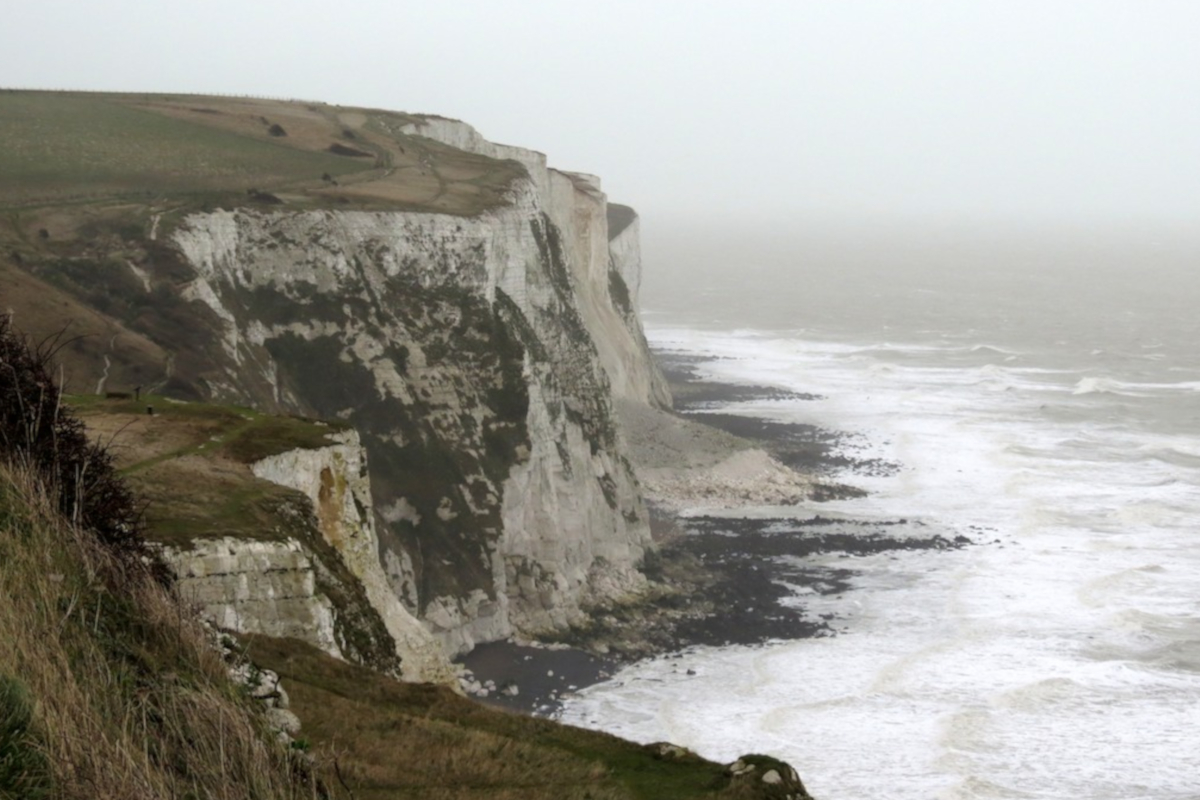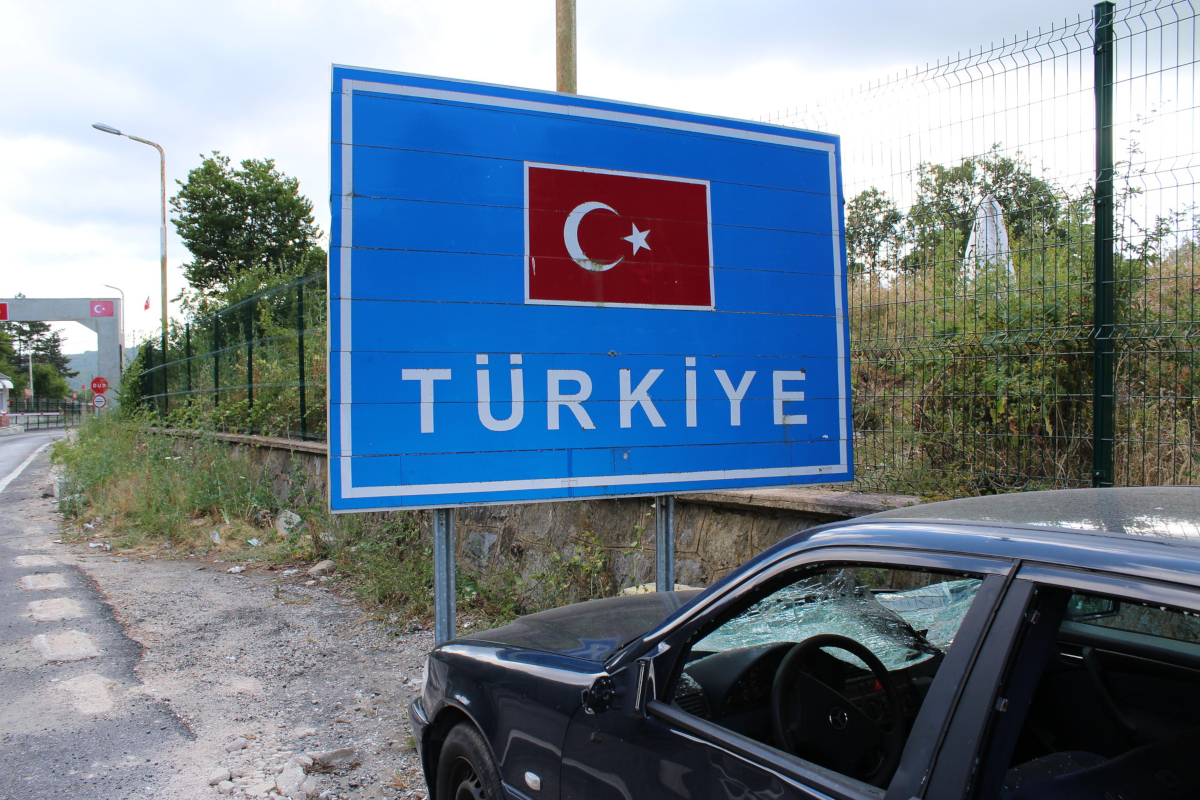The externalisation of migration policies to the South is not the solution to the structural crisis of reception in the North
Topic
Country/Region
09 March 2023
Statement published to coincide with the Justice and Home Affairs Council meeting of 9 and 10 March, calling for an end to repressive migration policies and "a return to Europe's founding values of solidarity and respect for the law". Signed by 16 organisations, including Statewatch.
Support our work: become a Friend of Statewatch from as little as £1/€1 per month.

Image: Alessandro Scarcella, CC BY-ND 2.0
On 9 and 10 March 2023, the Justice and Home Affairs Council (JHA) of the European Union will focus on strengthening Fortress Europe and externalising migration issues. The 27 hope to put an end to the structural crises of reception in Europe. We, the signatory associations of this of this white card, denounce these false good solutions and ask Belgium, during this Council and on the eve of its presidency of the EU in 2024, to radically reorient the approach of European migration policies from a repressive logic to solutions that are supportive, sustainable and respectful of international law.
The dead end of the repressive approach to European migration policies
For more than thirty years, the Member States have been trying, through externalisation policies, to restrict the arrival of migrants in Europe, to let third countries manage asylum and to facilitate the return of those who have not obtained or lost their right of residence in Europe. This method is inefficient, costly and disrespectful of international law which includes the fundamental rights of exiled persons.
Indeed, even though exiled persons move and are mostly welcomed in their own region, the number of those who arrive at European borders does not decrease. [1] On the other hand, the irregular exile routes used are increasingly deadly and enrich the business of traffickers in the absence of legal channels. Forced returns, a pillar of the strategy, are not carried out due to the lack of removal agreements with third countries. [2] Finally, the budget of the Frontex agency is increased exponentially, [3] while many investigations suspect the agency of not respecting the fundamental rights of migrants, without any real results: the number of arrivals depends much more on the vagaries of international geopolitical instability than on the obstacles put in place by the countries of arrival.
On the reception side, no mechanism of solidarity and fair distribution between European Member States is accepted. The border countries of the Schengen area are still alone, due to the lack of reform of the Dublin Regulation, [4] to assume the first reception. In spite of this, second-tier countries, such as Belgium, complain that they are overwhelmed by movements of "Dublinées". This leads to "sorting" practices on the ground at the borders without individual treatment, detention and encampment contrary to the right of asylum.
Respect for international law as a way out of the crisis and sustainable solutions
In view of this, we are entitled to ask why so much effort is being made to make the public believe that preventing people from leaving their country is not only feasible but that it will solve the structural crises of reception in Europe. It is also said that there will be an "air gap", although this has never been verified in practice.
For it is by facilitating legal access to international mobility that people at risk will be able to apply for international protection without having to risk their lives. For others, it will be an opportunity to study or work in order to contribute to the host country and to fight against global inequalities by sending funds to the countries of origin. In this context, the 27 should sign collaborative and non-coercive partnership agreements with the countries of the South aimed at achieving the Sustainable Development Goals. This is a request from third countries that is never followed by Europe.
Concerning the reception of asylum seekers, civil society has been asking for years for a binding mechanism of fair distribution at European level. This requires a reform of the Dublin Regulation. In Belgium, the roadmap for exiting the crisis, proposed in September 2022 by civil society, highlights a compulsory distribution plan between municipalities and the requisition of emergency accommodation for a temporary period. It also proposes that "unreachable" people, such as Afghan nationals, should leave the reception network with a temporary residence permit. At present, people in need of international protection are left on the streets and can only rely on the solidarity of citizens and humanitarian organisations.
Finally, funds dedicated to migration policies must be redirected from control and expulsion to mobility, reception and inclusion, notably through access to employment and training. The reform of the single permit currently under negotiation at European and Belgian level is an opportunity to try to solve the problem of job vacancies in shortage and the regularisation through work of people without legal residence.
Signatories
CNCD-11.11.11, 11.11.11, CIRÉ, Vluchtelingenwerk Vlaanderen, Caritas, Jesuit Refugee Service, Ligue des Droits Humains, Centre avec, MOC, FGTB, CEPAG, CSC Bruxelles, Move, EuroMed Rights, Migreurop and Statewatch
Originally published by CNCD-11.11.11. Translation by Statewatch.
Notes
[1] En 2022, 924 000 personnes ont demandé l’asile dans l’UE, soit près de deux fois plus qu’en 2021.
[2] L’UE n’a pas réussi à plusieurs reprises à atteindre son objectif de renvoyer au moins 70% des personnes ayant reçu l’ordre de quitter le territoire. En 2021, ce chiffre a encore diminué pour atteindre 21%.
[3] Avec un budget de 700 millions d’euros en 2022, Frontex est l’agence de l’UE la mieux dotée.
[4] Le principe du règlement Dublin est qu’un seul Etat européen est responsable de la demande d’asile d’une personne ressortissante d’un Etat tiers. Le but étant d’interdire à la fois qu’un demandeur sollicite l’asile dans différents pays européens et que ne lui donne pas le choix du pays qui examinera sa demande.
Our work is only possible with your support.
Become a Friend of Statewatch from as little as £1/€1 per month.
Further reading
Access denied: Secrecy and the externalisation of EU migration control
<p>For at least three decades, the EU and its Member States have engaged in a process of “externalisation” – a policy agenda by which the EU seeks to prevent migrants and refugees setting foot on EU territory by externalising (that is, outsourcing) border controls to non-EU states. The EU’s <a href="https://eu.boell.org/en/new-eu-pact-migration-and-asylum" target="t">New Pact on Migration and Asylum</a>, published in September 2020, proposed a raft of measures seeking to step up operational cooperation and collaboration in order to further this agenda.</p>

UN migration data kept from the public but delivered to EU border externalisation body
In January, representatives of the International Organization for Migration (IOM) and UN refugee agency (UNHCR) gave presentations to a new EU body launched last year to propel the externalisation of migration policies. The presentations included multiple facts and figures that are no longer made public, and the UNHCR called for the UNHCR and EU member states to align their communications strategies, “without concealing challenges.”

Pushbacks, migration policy and returns at the core of EU support for authoritarian regimes
The ongoing debate on pushbacks and rights violations at external EU borders neglects an important aspect: the EU and its states betray their claimed goal to promote human rights, the rule of law and civil society development worldwide by helping authoritarian regimes oppress their citizens, and also to stop them from leaving.
Spotted an error? If you've spotted a problem with this page, just click once to let us know.

